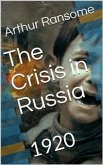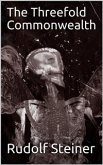THE purpose of the author in writing this story is to furnish the public with reliable information about the Ku Klux Klan, and at the same time give entertainment. It is also hoped that Klansmen who read this story will be given a greater appreciation of the Invisible Empire.
While this is essentially a work of fiction, yet the principles as here elucidated are the true principles of the Ku Klux Klan.
Statistics quoted in this story are accurate and quotations credited to real persons are correct. The story as a whole is fiction but many of the incidents are true.
The Ku Klux Klan, commonly called the KKK or the Klan, is an American white supremacist hate group. The Klan has existed in three distinct eras at different points in time during the history of the United States. Each has advocated extremist reactionary positions such as white nationalism, anti-immigration and—especially in later iterations—Nordicism and anti-Catholicism. Historically, the Klan used terrorism—both physical assault and murder—against groups or individuals whom they opposed. All three movements have called for the "purification" of American society and all are considered right-wing extremist organizations. In each era, membership was secret and estimates of the total were highly exaggerated by both friends and enemies.
The first Klan flourished in the Southern United States in the late 1860s after the American Civil War, then died out by the early 1870s. It sought to overthrow the Republican state governments in the South, especially by using violence against African-American leaders. Each chapter was largely autonomous and highly secret as to membership and plans. Its numerous chapters across the South were suppressed around 1871, through federal law enforcement. Members made their own, often colorful, costumes: robes, masks and conical hats, designed to be terrifying and to hide their identities.
The second Klan was founded in Georgia in 1915 and it flourished nationwide in the early and mid-1920s, including urban areas of the Midwest and West. Taking inspiration from D. W. Griffith's 1915 silent film The Birth of a Nation, which mythologized the founding of the first Klan, it employed marketing techniques and a popular fraternal organization structure. Rooted in local Protestant communities, it sought to maintain white supremacy, often took a pro-Prohibition stance, and it opposed Catholics and Jews, while also stressing its opposition to the alleged political power of the Pope and the Catholic Church. It rapidly declined in the later half of the 1920s.
The third and current manifestation of the KKK emerged after 1950, in the form of localized and isolated groups that use the KKK name. They have focused on opposition to the civil rights movement, often using violence and murder to suppress activists. It is classified as a hate group by the Anti-Defamation League and the Southern Poverty Law Center. As of 2016, the Anti-Defamation League puts total KKK membership nationwide at around 3,000, while the Southern Poverty Law Center (SPLC) puts it at 6,000 members total.
The second and third incarnations of the Ku Klux Klan made frequent references to America's "Anglo-Saxon" blood, hearkening back to 19th-century nativism. Although members of the KKK swear to uphold Christian morality, virtually every Christian denomination has officially denounced the KKK.
While this is essentially a work of fiction, yet the principles as here elucidated are the true principles of the Ku Klux Klan.
Statistics quoted in this story are accurate and quotations credited to real persons are correct. The story as a whole is fiction but many of the incidents are true.
The Ku Klux Klan, commonly called the KKK or the Klan, is an American white supremacist hate group. The Klan has existed in three distinct eras at different points in time during the history of the United States. Each has advocated extremist reactionary positions such as white nationalism, anti-immigration and—especially in later iterations—Nordicism and anti-Catholicism. Historically, the Klan used terrorism—both physical assault and murder—against groups or individuals whom they opposed. All three movements have called for the "purification" of American society and all are considered right-wing extremist organizations. In each era, membership was secret and estimates of the total were highly exaggerated by both friends and enemies.
The first Klan flourished in the Southern United States in the late 1860s after the American Civil War, then died out by the early 1870s. It sought to overthrow the Republican state governments in the South, especially by using violence against African-American leaders. Each chapter was largely autonomous and highly secret as to membership and plans. Its numerous chapters across the South were suppressed around 1871, through federal law enforcement. Members made their own, often colorful, costumes: robes, masks and conical hats, designed to be terrifying and to hide their identities.
The second Klan was founded in Georgia in 1915 and it flourished nationwide in the early and mid-1920s, including urban areas of the Midwest and West. Taking inspiration from D. W. Griffith's 1915 silent film The Birth of a Nation, which mythologized the founding of the first Klan, it employed marketing techniques and a popular fraternal organization structure. Rooted in local Protestant communities, it sought to maintain white supremacy, often took a pro-Prohibition stance, and it opposed Catholics and Jews, while also stressing its opposition to the alleged political power of the Pope and the Catholic Church. It rapidly declined in the later half of the 1920s.
The third and current manifestation of the KKK emerged after 1950, in the form of localized and isolated groups that use the KKK name. They have focused on opposition to the civil rights movement, often using violence and murder to suppress activists. It is classified as a hate group by the Anti-Defamation League and the Southern Poverty Law Center. As of 2016, the Anti-Defamation League puts total KKK membership nationwide at around 3,000, while the Southern Poverty Law Center (SPLC) puts it at 6,000 members total.
The second and third incarnations of the Ku Klux Klan made frequent references to America's "Anglo-Saxon" blood, hearkening back to 19th-century nativism. Although members of the KKK swear to uphold Christian morality, virtually every Christian denomination has officially denounced the KKK.









